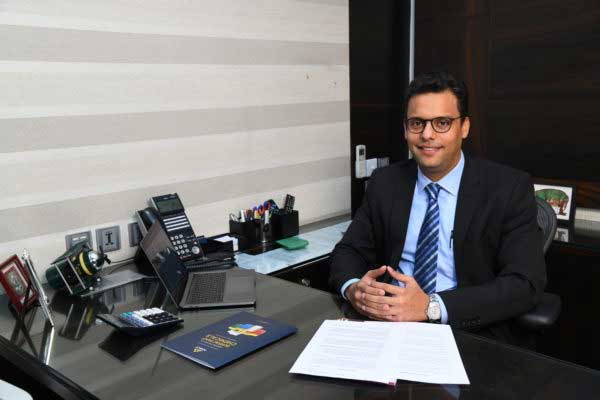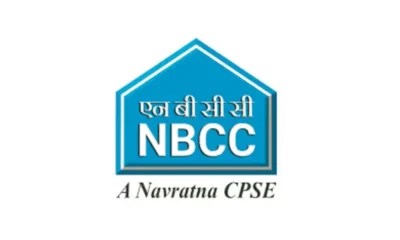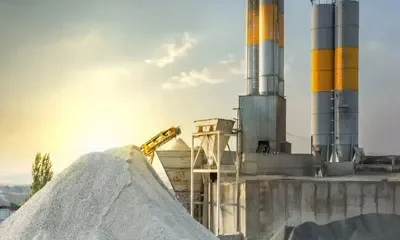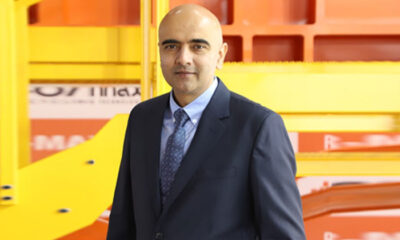Technology
Outsourcing & compliance for industrial relations
Published
7 years agoon
By
admin
Enterprises in India desiring to be a supplier to any of the leading international brands, especially in the apparel business need to be audited and have a valid certification that they comply with SA8000 standard, thinks Dr Rajen Mehrotra.
Companies were traditionally manufacturing products and performing various services, within their enterprise, including servicing their customers to whom the products were sold. For this the companies had their own staff, i.e., employees working at different levels within the company. This practice has gone through a major change where in the business strategy world-over for companies after the end of cold war (i.e. 1989) has been outsourcing wherever feasible and viable. The present day approach by many large companies in India is, to hire another party outside the company to manufacture components or the product if possible, and also obtain the services of an external agency for services needed by the company or for servicing the customers and the same is referred as outsourcing.
With this approach, the number of employees working for the company over a period of time has got restructured, leading to reduction of employees covered under the ambit of the Industrial Disputes Act, 1947. At the same time, the employees working for the enterprise carrying out the outsourced activity based on their job content are covered under the ambit of the Industrial Disputes Act, 1947. In the initial years, these enterprises carrying out the outsourced service were small and had a few employees, but presently most have grown in size and have a substantial workforce, hence unionisation of workforce does takes place and issues of industrial relations do come up.
While the enterprises manufacturing components or the product or providing the service to the company is an independent enterprise, but it is an important vendor of the supply chain for the company. Hence any industrial unrest or turbulence effecting the quantity and quality of the component or products or services in the supply chain from any of the vendors is bound to have an adverse impact on the functioning of the company.
Social Accountability (SA) 8000 International buyers, who have adopted a strategy of outsourcing, which involves getting their specified components or products, manufactured in another country in quite a few cases call upon the supplier to comply with social accountability standard called SA8000. This in many cases is a must. This standard is the leading social certification standard for factories and organizations across the globe. It was established by Social Accountability International in 1997 as a multi-stakeholder initiative. Over the years, the standard has evolved into an overall framework that helps certified organisations demonstrate their dedication to the fair treatment of workers across industries and in any country from where the international buyer gets the products manufactured. Enterprises in India desiring to be a supplier to any of the leading international brands, especially in the apparel business need to be audited and have a valid certification that they comply with SA8000 standard.
SA8000 measures social performance in eight areas [i.e. child labour, forced or compulsory labour, health and safety, freedom of association and right to collective bargaining, discrimination, disciplinary practices, working hours, remuneration and management system] that are important to social accountability in workplaces, anchored by a management system element that drives continuous improvement in all areas of the standard. International buyers to safe guard the reputation of their brands and to ensure social compliance in their supply chains, without sacrificing business interests, ask the supplier enterprises to be SA8000 compliant.
Code of conduct
The vast majority of supply chain codes of conduct by international buyers focus exclusively on the requirements to be imposed on suppliers. This is the traditional "top-down" approach wherein the buyer dictates their expectations to the supplier, as the buyer has ample choice and hence suppliers have to comply, except where suppliers are original equipment manufacturers (OEMs) and hence it is not possible for the buyer to dictate. There is need for a collaborative approach, as there are certain limitations of the supplier, and there is a tendency by the large size buyers on squeezing the supplier with reference to price.
Most suppliers are vendors to large scale companies that are outsourcing manufacturing of components or the products and desire uninterrupted supply. Most of these supplier vendor enterprises pay minimum wages or slightly higher than the minimum wages to their workforce and try to ensure that their operations run smoothly and there are no interruptions. At the same time those enterprises that are SA8000 compliant have one of the social performance indicator which states "Freedom of Association and Right to Collective Bargaining", hence the workers of these enterprises could have a trade union and also raise a demand for improvement in their existing conditions of employment leading to negotiations and collective bargain. In the event the demands are not mutually settled, it could lead to industrial relations issues.
Companies like IKEA and many other international buyers conduct periodic audits with their suppliers, and when they observe deviations in the prescribed code of conduct, they give time to the supplier to carry out the corrections in the deviation. If the corrections in the observed deviation are not carried out in specified time period, then the supplier is black listed and dropped from being a vendor.
There are vendors that are designated as preferred vendors by the buyers, which facilitate them in getting higher volume of business and in certain cases a better price.
ILO’s effort The Employers’ Wing of the International Labour Organization (ILO), Geneva through the International Training Centre (ITC) Turin, Italy with the support of The Walt Disney Company, USA designed a programme on Responsible Business Conduct (RBC) and Occupational Safety & Health (OSH) in supply chain intermediaries for enterprises. Under this programme, the ILO-trained participants from four countries (i.e. India, Indonesia, Philippines and Thailand) that underwent training, which involved distance learning of five weeks (i.e from 30 July to 2 September 2018) followed by a face to face learning of one week (i.e. from September 10-14, 2018) in Bangkok, Thailand.
The issues impacting RBC covered in the training were: child labour, forced labour overtime, minimum salary, discrimination, freedom of association and right to collective bargaining and social security. These are also part of ILO Declaration on Fundamental Principles and Rights at Work adopted by the Governing Body of ILO in June 1998 covering ILO’s eight core conventions {i.e. freedom of association and right to collective bargaining (C 87 & C 98), forced labour (C 29 & C 105), child labour (C 138 and C 182) and discrimination (C 100 and C 111)}. Violation of any of these cited above is being unfair to the labour that produces these components or the products for the buyer.
Also the issues impacting OSH covered in the training are [introduction to safety and health at work, risk assessment, accidents prevention and reporting, motivating workers: leadership and supervision, management of prevention, internal emergency plan, hazardous substances, fire and explosion, electricity, tools, machines and appliances, hoist, lift and bear, trip, slip and fall, work at height, special works, confined spaces, radiation, asbestos, noise and vibrations, ergonomics, PPE, safety and health signalisation, harassment and violence at work, drugs and alcohol awareness , work permits, emergency responses, musculoskeletal disorders, and health and safety committees.
This is an effort by ILO to facilitate the employer organisations in India, Indonesia, Philippines and Thailand to have master trainers in each country that can facilitate enterprises in ensuring compliance of Responsible Business Conduct (RBC) and Occupational Safety & Health (OSH) in supply chain intermediaries of enterprises in each of these countries. For India eleven master trainers were trained and the author was a beneficiary of this training as a nominee of Employers’ Federation of India (EFI).
Presently the media as well as NGOs in certain parts of the world are active in undertaking investigation and bringing out violations in the area of RBC and OSH, which has an impact on the reputation of the brand of the buyer, thus effecting business both for the buyer as well as the supplier. It is in the interest of both the buyer as well as the suppliers in India that the issues mentioned under RBC and OSH is complied with and these can also be part of the code of conduct specified by the buyers in India.
Conclusion
Whenever a supplier fails to meet the quality and quantity requirement as per the agreed delivery schedule with the buyer, the supply chain of the buyer gets impacted. The problems can be for various reasons some of which are listed below:
- Inadequate compliance with the regulatory frame work,
- non timely supply of raw material,
- non compliance of quality specifications with respect to raw material,
- limitation of production capacity,
- difficulties in the operation of the plant and machinery due to breakdowns,
- insufficient availability of working capital
- shortage of trained workforce including absenteeism, and
- Industrial relations issues due to unresolved issues.
The suppliers in India need to develop and implement systems for managing not only the items listed above but also others that can affect the supply chain. In the event the supplier is likely to fail in the timely supply, then the supplier needs to keep the buyer informed in advance, so that the buyer can take appropriate timely action.
Presently, the number of employees working for the enterprise carrying out the outsourced activity based on their job content is substantial. In the context of India these employees are covered under the ambit of the Industrial Disputes Act 1947, hence issues of Industrial Relations are bound to come up at some stage wherein the employees will bargain for improved working conditions, better wages and improved welfare.
Buyers in India need to evolve a code of conduct with suppliers incorporating items covered under SA8000, RBC and OSH as mentioned above.
Also the vendor enterprises need to not only comply with the issues listed under SA8000, RBC and OSH, but also take preventive action to avoid industrial relations turbulence, which affect the business and the supply chain.
About the author
Dr Rajen Mehrotra is an Immediate Past President of Industrial Relations Institute of India (IRII), Former Senior Employers’ Specialist for South Asian Region with International Labour Organization (ILO) and Former Corporate Head of HR with ACC. and Former Corporate Head of Manufacturing and HR with Novartis India.
He can be contacted on: rajenmehrotra@gmail.com
Published in February 2019 issue of Current Labour Reports
You may like
Economy & Market
From Vision to Action: Fornnax Global Growth Strategy for 2026
Published
4 weeks agoon
January 19, 2026By
admin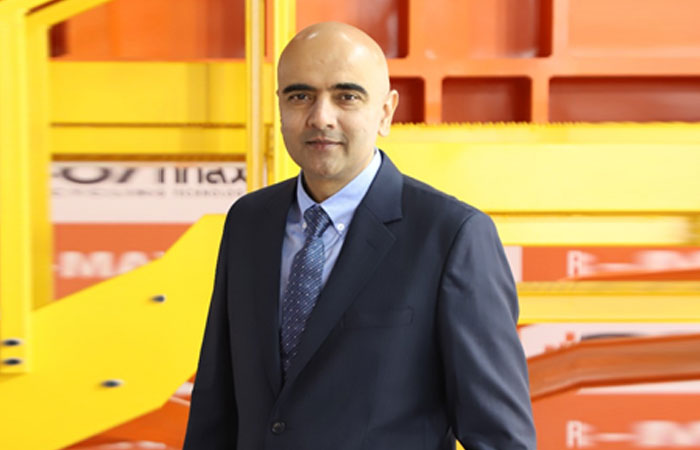
Jignesh Kundaria, Director & CEO, Fornnax Recycling Technology
As 2026 begins, Fornnax is accelerating its global growth through strategic expansion, large-scale export-led installations, and technology-driven innovation across multiple recycling streams. Backed by manufacturing scale-up and a strong people-first culture, the company aims to lead sustainable, high-capacity recycling solutions worldwide.
As 2026 begins, Fornnax stands at a pivotal stage in its growth journey. Over the past few years, the company has built a strong foundation rooted in engineering excellence, innovation, and a firm commitment to sustainable recycling. The focus ahead is clear: to grow faster, stronger, and on a truly global scale.
“Our 2026 strategy is driven by four key priorities,” explains Mr. Jignesh Kundaria, Director & CEO of Fornnax.
First, Global Expansion
We will strengthen our presence in major markets such as Europe, Australia, and the GCC, while continuing to grow across our existing regions. By aligning with local regulations and customer requirements, we aim to establish ourselves as a trusted global partner for advanced recycling solutions.
A major milestone in this journey will be export-led global installations. In 2026, we will commission Europe’s highest-capacity shredding line, reinforcing our leadership in high-capacity recycling solutions.
Second, Product Innovation and Technology Leadership
Innovation remains at the heart of our vision to become a global leader in recycling technology by 2030. Our focus is on developing solutions that are state-of-the-art, economical, efficient, reliable, and environmentally responsible.
Building on a decade-long legacy in tyre recycling, we have expanded our portfolio into new recycling applications, including municipal solid waste (MSW), e-waste, cable, and aluminium recycling. This diversification has already created strong momentum across the industry, marked by key milestones scheduled to become operational this year, such as:
- Installation of India’s largest e-waste and cable recycling line.
- Commissioning of a high-capacity MSW RDF recycling line.
“Sustainable growth must be scalable and profitable,” emphasizes Mr. Kundaria. In 2026, Fornnax will complete Phase One of our capacity expansion by establishing the world’s largest shredding equipment manufacturing facility. This 23-acre manufacturing unit, scheduled for completion in July 2026, will significantly enhance our production capability and global delivery capacity.
Alongside this, we will continue to improve efficiency across manufacturing, supply chain, and service operations, while strengthening our service network across India, Australia, and Europe to ensure faster and more reliable customer support.
Finally: People and Culture
“People remain the foundation of Fornnax’s success. We will continue to invest in talent, leadership development, and a culture built on ownership, collaboration, and continuous improvement,” states Mr. Kundaria.
With a strong commitment to sustainability in everything we do, our ambition is not only to grow our business, but also to actively support the circular economy and contribute to a cleaner, more sustainable future.
Guided by a shared vision and disciplined execution, 2026 is set to be a defining year for us, driven by innovation across diverse recycling applications, large-scale global installations, and manufacturing excellence.
Concrete
Technology plays a critical role in achieving our goals
Published
2 months agoon
December 24, 2025By
admin
Arasu Shanmugam, Director and CEO-India, IFGL, discusses the diversification of the refractory sector into the cement industry with sustainable and innovative solutions, including green refractories and advanced technologies like shotcrete.
Tell us about your company, it being India’s first refractory all Indian MNC.
IFGL Refractories has traditionally focused on the steel industry. However, as part of our diversification strategy, we decided to expand into the cement sector a year ago, offering a comprehensive range of solutions. These solutions cover the entire process, from the preheater stage to the cooler. On the product side, we provide a full range, including alumina bricks, monolithics, castables, and basic refractories.
In a remarkably short span of time, we have built the capability to offer complete solutions to the cement industry using our own products. Although the cement segment is new for IFGL, the team handling this business vertical has 30 years of experience in the cement industry. This expertise has been instrumental in establishing a brand-new greenfield project for alumina bricks, which is now operational. Since production began in May, we are fully booked for the next six months, with orders extending until May 2025. This demonstrates the credibility we have quickly established, driven by our team’s experience and the company’s agility, which has been a core strength for us in the steel industry and will now benefit our cement initiatives.
As a 100 per cent Indian-owned multinational company, IFGL stands out in the refractory sector, where most leading players providing cement solutions are foreign-owned. We are listed on the stock exchange and have a global footprint, including plants in the United Kingdom, where we are the largest refractory producer, thanks to our operations with Sheffield Refractories and Monocon. Additionally, we have a plant in the United States that produces state-of-the-art black refractories for critical steel applications, a plant in Germany providing filtering solutions for the foundry sector, and a base in China, ensuring secure access to high-quality raw materials.
China, as a major source of pure raw materials for refractories, is critical to the global supply chain. We have strategically developed our own base there, ensuring both raw material security and technological advancements. For instance, Sheffield Refractories is a leader in cutting-edge shotcreting technology, which is particularly relevant to the cement industry. Since downtime in cement plants incurs costs far greater than refractory expenses, this technology, which enables rapid repairs and quicker return to production, is a game-changer. Leading cement manufacturers in the country have already expressed significant interest in this service, which we plan to launch in March 2025.
With this strong foundation, we are entering the cement industry with confidence and a commitment to delivering innovative and efficient solutions.
Could you share any differences you’ve observed in business operations between regions like Europe, India, and China? How do their functionalities and approaches vary?
When it comes to business functionality, Europe is unfortunately a shrinking market. There is a noticeable lack of enthusiasm, and companies there often face challenges in forming partnerships with vendors. In contrast, India presents an evolving scenario where close partnerships with vendors have become a key trend. About 15 years ago, refractory suppliers were viewed merely as vendors supplying commodities. Today, however, they are integral to the customer’s value creation chain.
We now have a deep understanding of our customers’ process variations and advancements. This integration allows us to align our refractory solutions with their evolving processes, strengthening our role as a value chain partner. This collaborative approach is a major differentiator, and I don’t see it happening anywhere else on the same scale. Additionally, India is the only region globally experiencing significant growth. As a result, international players are increasingly looking at India as a potential market for expansion. Given this, we take pride in being an Indian company for over four decades and aim to contribute to making Aatma Nirbhar Bharat (self-reliant India) a reality.
Moving on to the net-zero mission, it’s crucial to discuss our contributions to sustainability in the cement industry. Traditionally, we focused on providing burnt bricks, which require significant fuel consumption during firing and result in higher greenhouse gas emissions, particularly CO2. With the introduction of Sheffield Refractories’ green technology, we are now promoting the use of green refractories in cement production. Increasing the share of green refractories naturally reduces CO2 emissions per ton of clinker produced.
Our honourable Prime Minister has set the goal of achieving net-zero emissions by 2070. We are committed to being key enablers of this vision by expanding the use of green refractories and providing sustainable solutions to the cement industry, reducing reliance on burnt refractories.
Technology is advancing rapidly. What role does it play in helping you achieve your targets and support the cement industry?
Technology plays a critical role in achieving our goals and supporting the cement industry. As I mentioned earlier, the reduction in specific refractory consumption is driven by two key factors: refining customer processes and enhancing refractory quality. By working closely as partners with our customers, we gain a deeper understanding of their evolving needs, enabling us to continuously innovate. For example, in November 2022, we established a state-of-the-art research centre in India for IFGL, something we didn’t have before.
The primary objective of this centre is to leverage in-house technology to enhance the utilisation of recycled materials in manufacturing our products. By increasing the proportion of recycled materials, we reduce the depletion of natural resources and greenhouse gas emissions. In essence, our focus is on developing sustainable, green refractories while promoting circularity in our business processes. This multi-faceted approach ensures we contribute to environmental sustainability while meeting the industry’s demands.
Of course, this all sounds promising, but there must be challenges you’re facing along the way. Could you elaborate on those?
One challenge we face is related to India’s mineral resources. For instance, there are oxide deposits in the Saurashtra region of Gujarat, but unfortunately, they contain a higher percentage of impurities. On the magnesite side, India has deposits in three regions: Salem in Tamil Nadu, Almora in Uttarakhand, and Jammu. However, these magnesite deposits also have impurities. We believe the government should take up research and development initiatives to beneficiate these minerals, which are abundantly available in India, and make them suitable for producing high-end refractories. This task is beyond the capacity of an individual refractories company and requires focused policy intervention. While the government is undertaking several initiatives, beneficiation of minerals like Indian magnesite and Indian oxide needs to become a key area of focus.
Another crucial policy support we require is recognising the importance of refractories in industrial production. The reality is that without refractories, not even a single kilogram of steel or cement can be produced. Despite this, refractories are not included in the list of core industries. We urge the government to designate refractories as a core industry, which would ensure dedicated focus, including R&D allocations for initiatives like raw material beneficiation. At IFGL, we are taking proactive steps to address some of these challenges. For instance, we own Sheffield Refractories, a global leader in shotcrete technology. We are bringing this technology to India, with implementation planned from March onwards. Additionally, our partnership with Marvel Refractories in China enables us to leverage their expertise in providing high-quality refractories for steel and cement industries worldwide.
While we are making significant efforts at our level, policy support from the government—such as recognising refractories as a core industry and fostering research for local raw material beneficiation—would accelerate progress. This combined effort would greatly enhance India’s capability to produce high-end refractories and meet the growing demands of critical industries.
Could you share your opinion on the journey toward achieving net-zero emissions? How do you envision this journey unfolding?
The journey toward net zero is progressing steadily. For instance, even at this conference, we can observe the commitment as a country toward this goal. Achieving net zero involves having a clear starting point, a defined objective, and a pace to progress. I believe we are already moving at an impressive speed toward realising this goal. One example is the significant reduction in energy consumption per ton of clinker, which has halved over the past 7–8 years—a remarkable achievement.
Another critical aspect is the emphasis on circularity in the cement industry. The use of gypsum, which is a byproduct of the fertiliser and chemical industries, as well as fly ash generated by the power industry, has been effectively incorporated into cement production. Additionally, a recent advancement involves the use of calcined clay as an active component in cement. I am particularly encouraged by discussions around incorporating 12 per cent to 15 per cent limestone into the mix without the need for burning, which does not compromise the quality of the final product. These strategies demonstrate the cement industry’s constructive and innovative approach toward achieving net-zero emissions. The pace at which these advancements are being adopted is highly encouraging, and I believe we are on a fast track to reaching this critical milestone.
– Kanika Mathur
Technology
ARAPL Reports 175% EBITDA Growth, Expands Global Robotics Footprint
Affordable Robotic & Automation posts strong Q2 and H1 FY26 results driven by innovation and overseas orders
Published
4 months agoon
October 15, 2025By
admin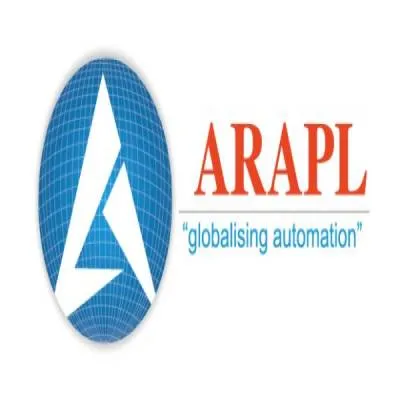
Affordable Robotic & Automation Limited (ARAPL), India’s first listed robotics firm and a pioneer in industrial automation and smart robotic solutions, has reported robust financial results for the second quarter and half year ended September 30, 2025.
The company achieved a 175 per cent year-on-year rise in standalone EBITDA and strong revenue growth across its automation and robotics segments. The Board of Directors approved the unaudited financial results on October 10, 2025.
Key Highlights – Q2 FY2026
• Strong momentum across core automation and robotics divisions
• Secured the first order for the Atlas AC2000, an autonomous truck loading and unloading forklift, from a leading US logistics player
• Rebranded its RaaS product line as Humro (Human + Robot), symbolising collaborative automation between people and machines
• Expanded its Humro range in global warehouse automation markets
• Continued investment in deep-tech innovations, including AI-based route optimisation, autonomy kits, vehicle controllers, and digital twins
Global Milestone: First Atlas AC2000 Order in the US
ARAPL’s US-based subsidiary, ARAPL RaaS (Humro), received its first order for the next-generation Atlas AC2000 autonomous forklift from a leading logistics company. Following successful prototype trials, the client placed an order for two robots valued at Rs 36 million under a three-year lease. The project opens opportunities for scaling up to 15–16 robots per site across 15 US warehouses within two years.
The product addresses an untapped market of 10 million loading docks across 21,000 warehouses in the US, positioning ARAPL for exponential growth.
Financial Performance – Q2 FY2026 (Standalone)
Net Revenue: Rs 25.7587 million, up 37 per cent quarter-on-quarter
EBITDA: Rs 5.9632 million, up 396 per cent QoQ
Profit Before Tax: Rs 4.3808 million, compared to a Rs 360.46 lakh loss in Q1
Profit After Tax: Rs 4.1854 lakh, representing 216 per cent QoQ growth
On a half-year basis, ARAPL reported a 175 per cent rise in EBITDA and returned to profitability with Rs 58.08 lakh PAT, highlighting strong operational efficiency and improved contribution from core businesses.
Consolidated Performance – Q2 FY2026
Net Revenue: Rs 29.566 million, up 57% QoQ
EBITDA: Rs 6.2608 million, up 418 per cent QoQ
Profit After Tax: Rs 4.5672 million, marking a 224 per cent QoQ improvement
Milind Padole, Managing Director, ARAPL said, “Our Q2 results reflect the success of our innovation-led growth strategy and the growing global confidence in ARAPL’s technology. The Atlas AC2000 order marks a defining milestone that validates our engineering strength and accelerates our global expansion. With a healthy order book and continued investment in AI and autonomous systems, ARAPL is positioned to lead the next phase of intelligent industrial transformation.”
Founded in 2005 and headquartered in Pune, Affordable Robotic & Automation Ltd (ARAPL) delivers turnkey robotic and automation solutions across automotive, general manufacturing, and government sectors. Its offerings include robotic welding, automated inspection, assembly automation, automated parking systems, and autonomous driverless forklifts.
ARAPL operates five advanced plants in Pune spanning 350,000 sq ft, supported by over 400 engineers in India and seven team members in the US. The company also maintains facilities in North Carolina and California, and service centres in Faridabad, Mumbai, and San Francisco.

FORNNAX Appoints Dieter Jerschl as Sales Partner for Central Europe

Budget 2026–27 infra thrust and CCUS outlay to lift cement sector outlook

Steel: Shielded or Strengthened?

JK Cement Commissions 3 MTPA Buxar Plant, Crosses 31 MTPA

JK Cement Crosses 31 MTPA Capacity with Commissioning of Buxar Plant in Bihar

FORNNAX Appoints Dieter Jerschl as Sales Partner for Central Europe

Budget 2026–27 infra thrust and CCUS outlay to lift cement sector outlook

Steel: Shielded or Strengthened?

JK Cement Commissions 3 MTPA Buxar Plant, Crosses 31 MTPA




